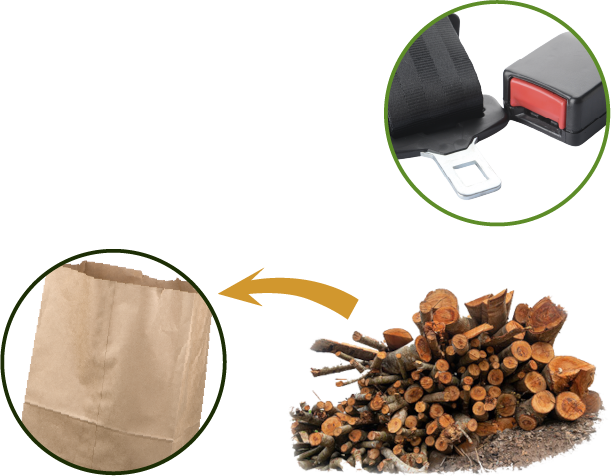Packaged with iQ™

Plastics are incredibly important to the world in so many ways:
Plastic Saves
Money, the Environment,
Food, and Lives:

- From the social perspective: plastics are key to meet the needs of 8+ billion people in an affordable and fair fashion. Alternatives do exist, but they’d be more expensive, leading to further poverty, hunger and compromising health and well-being.
- From the environmental perspective: eliminating plastics would give up on its efficiencies, leading to increased energy and water consumption, higher solid waste generation and higher global warming potential.
Unfortunately, plastics in the ocean might be more pollution than what the planet can handle and we need solutions to curb the accumulation.
LET’S BEGIN BY LOOKING AT
WHAT NEEDS TO CHANGE:
Plastic is fantastic. But our grandchildren shouldn’t be the ones left to deal with our plastic pollution.
Plastic has changed our world for the better, contributing to great leaps forward in medicine, technology, transportation, and food safety. In fact, our world could not function the way that it does today without plastic. The Covid-19 pandemic has emphasized the essentiality of plastic in the medical community. Imagine battling the spread of a contagion without the single use gloves, masks, and other medical equipment that are all made with plastic. Now, imagine where all that plastic will end up potentially remaining for your grandchildren’s grandchildren to deal with.
Durability is a two-edged sword:

As much as we reduce, reuse, recycle and improve waste collection infrastructure, a significant amount of plastic will continue to get into our oceans.
Once there, durable plastics accumulate. The EMF estimates that by 2050 there could be more plastic than fish in our oceans.
Plastics’ durability in the environment
needs to change. It is urgent.
OUR “PLASTICS WITH iQ“
VISION:
We modify the durability-profile of mainstream plastics:
Improve biodegradation* of plastics that reach biologically-active environments like our oceans (unfortunately expected to be no less than 5 million tons per year) while maintaining durability during normal use, reuse and recycle.
Put differently, we aspire for mainstream plastics to behave like wood. Durable in normal use, however more compatible with nature’s biodegradation systems.
Make no mistake: Plastic with iQ will NOT immediately disappear when entering the oceans, but it is a step in the right direction, remaining durable for most uses while having demonstrated potential for significantly quicker biodegradation*.
*Virtually all products impact the environment. Improving biodegradation alone doesn’t render a product sustainable. But it has potential to reduce plastics pollution. Plastics with 20% iQ have demonstrated up to 100% biodegradation in as little as one year under non-typical conditions (ideal ASTM D5511 and D5338). Plastics with 1% iQ have demonstrated 40% biodegradation in two years under the same non-typical conditions, no evidence of further biodegradation. Biodegradation of plastics with iQ in typical conditions (e.g., oceans) is currently being evaluated, but it is already demonstrated that replacing some polyethylene (PE), polypropylene (PP) and polystyrene (PS) by NuPlastiQ can only reduce the total amount of persistent plastics (and microplastics).

As much as we reduce, reuse, recycle and improve waste collection infrastructure, a significant amount of plastic will continue to get into our oceans.



